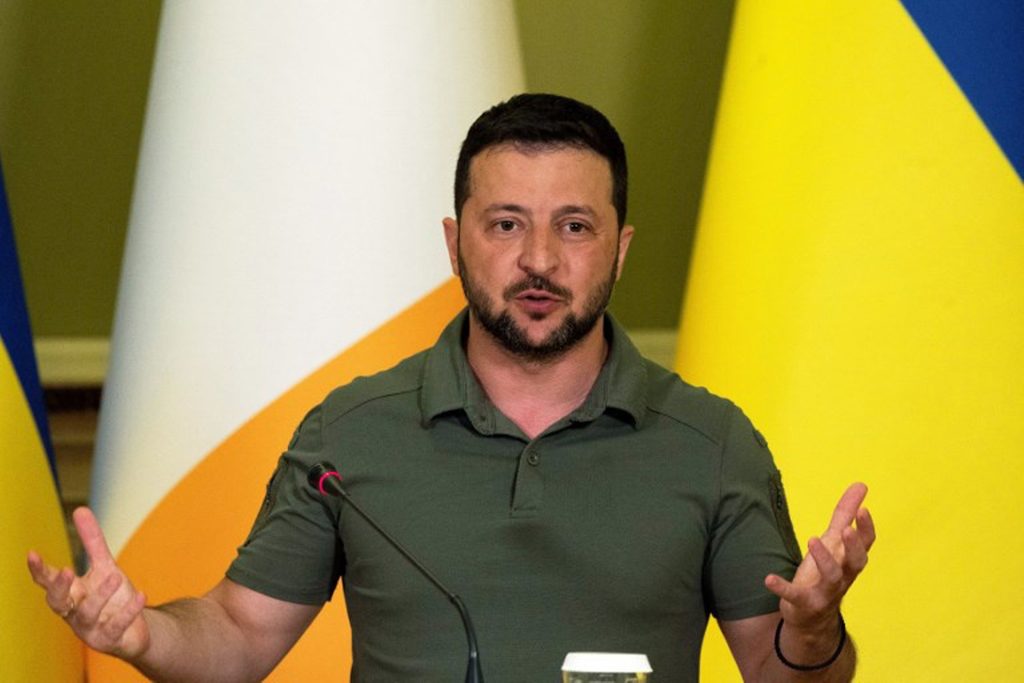President Volodymyr Zelenskyy on Monday deemed “unacceptable” the possibility of extending export restrictions on Ukrainian grain within the EU, called for by five of Ukraine’s neighbours to protect their farmers.
“Any extension of restrictions is absolutely unacceptable and frankly anti-European," Zelenskyy said in his daily address broadcast on social networks. "Europe has the institutional capacity to act more rationally rather than closing the border to a particular commodity.”
He said he hoped “the European side will fulfil its obligations” when the restrictions in place expire on 15 September.
Poland, Bulgaria, Hungary, Slovakia and Romania announced on Wednesday that they had signed a joint declaration asking Brussels to extend the embargo on Ukrainian grain imports into their territory until the end of the year.
Faced with an influx of Ukrainian agricultural products following the lifting of customs duties by the European Union in May 2022, the five countries had unilaterally banned imports in mid-April to stem the saturation of their silos and the collapse of local prices.
In June, the European Commission announced that these restrictions could be extended until 15 September, despite opposition from Kyiv and resistance from part of the EU-27.
Related News
- Belgium in Brief: Brussels cuts gas use but at what cost?
- Zelenskyy promises 'retaliation' after Odesa attack
Zelenskyy’s statement comes after Russia abandoned the important agreement that allowed Ukrainian grain to be exported from ports via the Black Sea.
Moscow has denounced the hindrance to its own agricultural exports as a result of Western sanctions. In fact, none of the sanctions adopted by the EU against Russia targets the trade in agricultural and food products, including cereals and fertilisers, between third countries and Russia.
A Commission spokesperson told The Brussels Times last week that the updated guidelines in September 2022 makes it clear that the transfer of Russian fertilisers to third countries via the EU is permitted.
At its meeting last Thursday, the EU foreign Affairs Council only “touched on the termination of the Black Sea Grain initiative by Russia” and did not take any decisions. The EU has taken steps to support Ukraine’s overland grain experts via road, rail and barges (“Solidarity Lanes”). However, it is uncertain whether the Solidarity Lanes have the capacity to replace the export via the Black Sea.

